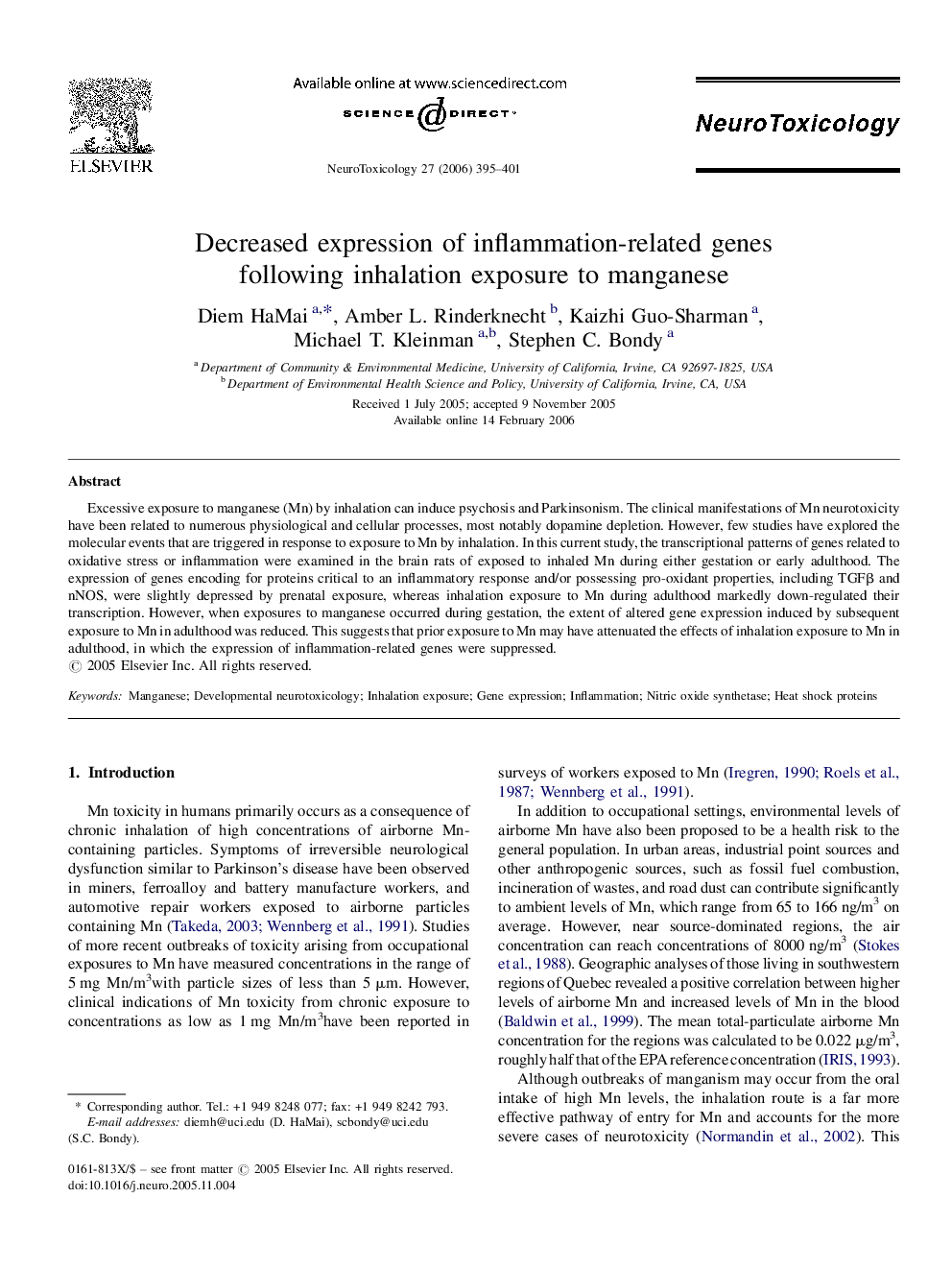| Article ID | Journal | Published Year | Pages | File Type |
|---|---|---|---|---|
| 2590768 | NeuroToxicology | 2006 | 7 Pages |
Abstract
Excessive exposure to manganese (Mn) by inhalation can induce psychosis and Parkinsonism. The clinical manifestations of Mn neurotoxicity have been related to numerous physiological and cellular processes, most notably dopamine depletion. However, few studies have explored the molecular events that are triggered in response to exposure to Mn by inhalation. In this current study, the transcriptional patterns of genes related to oxidative stress or inflammation were examined in the brain rats of exposed to inhaled Mn during either gestation or early adulthood. The expression of genes encoding for proteins critical to an inflammatory response and/or possessing pro-oxidant properties, including TGFβ and nNOS, were slightly depressed by prenatal exposure, whereas inhalation exposure to Mn during adulthood markedly down-regulated their transcription. However, when exposures to manganese occurred during gestation, the extent of altered gene expression induced by subsequent exposure to Mn in adulthood was reduced. This suggests that prior exposure to Mn may have attenuated the effects of inhalation exposure to Mn in adulthood, in which the expression of inflammation-related genes were suppressed.
Keywords
Related Topics
Life Sciences
Environmental Science
Health, Toxicology and Mutagenesis
Authors
Diem HaMai, Amber L. Rinderknecht, Kaizhi Guo-Sharman, Michael T. Kleinman, Stephen C. Bondy,
